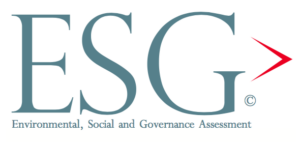From constantly evolving regulatory landscape and changing governance standards, to natural resource scarcity and global workforce management, there is an ever-increasing demand for Environmental, Social and Governance elements to be integrated into investment decision-making and stewardship.
Our ESG Methodology is developed to accommodate for corporate local laws and regulations as well as to international regulatory trends. The objective of this work is to evaluate the level of corporate impact and help them identify ESG-related risks and opportunities. Based on our findings, we can then place plan of actions to improve a corporation’s ESG practices and push beyond compliance boundaries. Our ESG methodology is the ultimate tool to guide corporations to become socially responsible and run sustainable businesses, making them a safe and smart investment destination.

Proprietary of Capital Concept, the Environment, Social, and Governance (ESG) Assessment Methodology is developed and aligned with IFC, OECD, and UN guidelines and principles. The assessment tool is composed of more than 600+ ESG performance standards. It is tailored based on different company sizes – micro, small, medium, and large – to help them identify ESG risks and impacts and to capitalize on new opportunities.
Weak adherence to these factors may lead to reputational damage, have an impact on a company’s capacity to raise funding (debt and equity) as well as, more broadly, negatively impact a company’s financial performance. Conversely, sound ESG practices are likely to improve a company’s reputation, shareholder value, mitigate reputational and financial risks, improve overall performance and access to capital by performing in an environmentally and socially responsible manner.
Our “tailor-made” ESG Methodology is refined and adapted to accommodate the corporation’s local laws and requirements, and to international regulatory trends. The objective of this work is to evaluate the level of corporate impact, and help them identify ESG related risks and opportunities.
Based on our findings, we can then place practical recommendations to improve a corporation’s ESG practices and push beyond compliance boundaries.
Capital Concept team conducts in depth research and extensive interviews with board members, senior management, audit committee and several other stakeholders to provide companies with essential recommendations for improving their governance procedures in the following areas:
- Strategy Fromulation
- Culture of and general commitment to ESG standards
- The role and functions of the board of directors
- The internal control mechanisms and risk management
- Transparency and disclosure of ESG practices
- Treatment of shareholders
- Investor perceptions
Capital Concept’s peer review & self-assessment helps companies identify existing gaps within ESG strategy and their associated risks by undertaking the ESG methodology self-assessment, hence embarking to the governance journey and pursue their interest towards their investors and stakeholders. After a client completed it’s self-assessment using one of our 72 proprietary methodologies, Capital Concept team undertakes a peer review to assess the current standards, structures and procedures and provides a detailed report with clear recommendations on how to further improve the ESG framework.
Through Capital Concept’s due diligence services, Capital Concept’s ESG due diligence approach is a core part of the deal process which covers a wide range of performance, risk and compliance issues. They include environmental, social and governance risks and how ESG affect the company’s long-term performance and pre-investment decision making. We go beyond local laws and best practices. We help companies & institutional investors identify risks pre-investing during relationships & incase of litigations. Our process includes the following:
- Research and overview of emerging ESG trends
- Analysis of share ownership, cross-shareholdings, vulnerability, and market activity and vote projection
- Review and assessment of ESG risks and opportunities
- Benchmarking company’s ESG policies, procedures and performance against international best practices
- Communication and transaction execution
- Update of shareholder base coordination with investor relations
- Post-meeting review and recommendations on ESG practices
